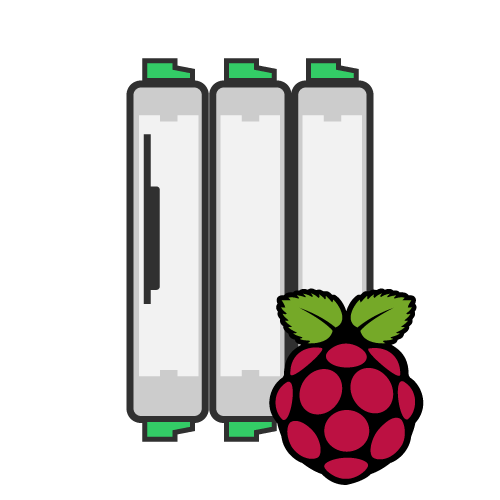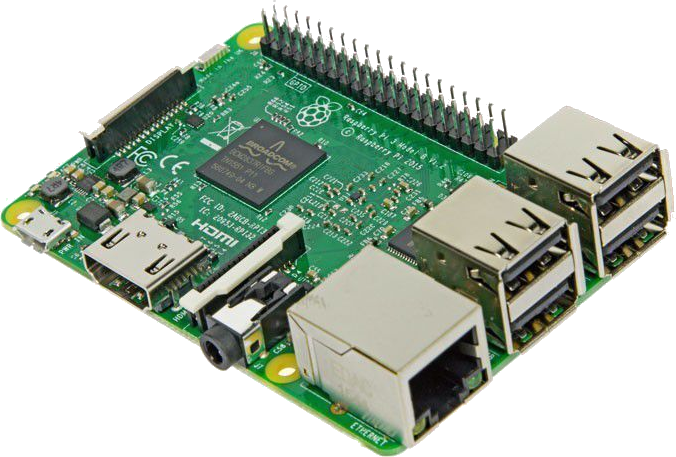The Raspberry Pi module is a single-board computer developed in the United Kingdom by the Raspberry Pi Foundation. The card was designed to host operating systems based on the Linux kernel. The Raspberry Pi Foundation releases GNU / Linux-based operating systems based on Debian.
The widespread use of the module has made it possible to make it more reliable and reduce its price, which is why we have created a module CPU SlimLine based on Raspberry. Designed for the industrial environment, it combines a power supply circuit (10 ÷ 30 Vdc input), a hardware wartch-dog, a 1-Wire interface, an isolated RS485 or CAN serial port. The module has an extension bus that allows you to connect all the family modules.
Our software offer available for both modules SlimLine which for Raspberry modules on the market makes it possible to simplify work in automation, home automation, networking and IoT. We can supply
- Plugins and Libraries for LogicLab, IDE PLC application development compliant with IEC-61131-3 standard.
- Libraries for CODESYS, IDE PLC application development compliant with IEC-61131-3 standard.
- Library libeS8CoreMng to develop programs in linguaggio C.
- Library libeS8CoreMng to develop programs in python.
CPU module software SlimLine Raspberry
Using CPUs SlimLine Raspberry can manage all expansion modules in the family. The watch dog circuit reboots the module's hardware, restoring system operation in the event of a software failure. The isolated RS485 or CAN interface allows communication with various protocols, by default Modbus and CAN Open are managed.
On systems SlimLine the development of "C" language programs is already licensed, the file /opt/elsist/SystemCfg.bin contains license information, it is recommended to save a copy.
Run-time LogicLab and Codesys licenses are not included and must be purchased separately.
CPU module upgrade SlimLine Raspberry
To perform software upgrade on CPU modules SlimLine Raspberry or to use our software in environment C, LogicLab, CODESYS, etc. on commercial Raspberry boards it is necessary to install the latest version of the package Mdp154, here are the steps:
- Create folder install in /tmp the SDCard. Command mkdir /tmp/install
- Copy files and folders from the Mdp154 installation package to /tmp/install
- Give execution rights to the file install.sh. Command chmod +x /tmp/install/install.sh
- Go to the installation folder. Command cd /tmp/install
- Run installer. Command ./install.sh.
Execution stops run time LogcLab deleting the user program. - Restart the system. Command sudo reboot
License to use software Elsist
Use of the software Elsist in environment C on our products is already licensed, while on the market Raspberry modules where the Mdp154 package has been installed it is necessary purchase the license. To check the license status, access the system via the SSH console (See article) and type the command sudo /opt/elsist/utils/eS8Config, a message like this will be displayed.
Elsist system configuration [SFW205A010-SFR092A210] Product code:....... MPS055A200 Serial Nr:.......... 99666 Unique ID:.......... 13*62*26 HUID................ ce*eeee*eeejeb***eeee*eebeehbkdv Product option:..... 0 Manufacturer code:.. 23
- Product code: Product code.
- Serial Nr: Product serial number.
- Unique ID: Unique identifier of all products Elsist.
- HUID: Unique product hardware code. To be communicated in the license request.
- Product option: Options code present on the device.
- Manufacturer code: Manufacturer ID.
Send an email to [email protected] with the value of HUID you will receive an e-mail with a file of the type file.bin, copy the file to the folder /tmp and run the command sudo /opt/elsist/utils/eS8Config -fcfg /tmp/file.bin followed by rebooting the system with the command sudo reboot.
Generate SDCard for Raspberry module
As seen in the previous paragraphs, our systems SlimLine they are supplied with the SDCard already installed, but for those who have lost and / or damaged it or make one for their Raspberry module, here is the procedure to create it.
- Download the "Raspberry Pi OS (32-bit) with desktop" image from https://www.raspberrypi.org/downloads/raspberry-pi-os/
- Flash the SDCard with one of the programs listed here https://www.raspberrypi.org/downloads/
- Insert the SDCard in Raspberry with video, mouse and keyboard connected and follow the initial wizard:
Set Italy, default login etc.
Disable: Camera, Serial console, Remote GPIO
Enable: SSH, VNC, SPI, I2C, Serial port, 1-Wire
Update the Pi OS via the internet if required - Install the personalization Elsist as indicated in the chapter CPU module upgrade SlimLine Raspberry above
- Follow the procedure in the chapter License to use software Elsist above.
If the file was saved *.bin the previous SDCard can be copied
Otherwise it will be necessary to request it as indicated in the chapter. - If you are using LogicLab you will have to enable the automatic run of the LogicLab runtime see chapter execution run time LogicLab in this article
- If you had the LogicLab license, you will need to reinstall it, see chapter License request in this article
We remind you that all license codes purchased are listed in This Page


